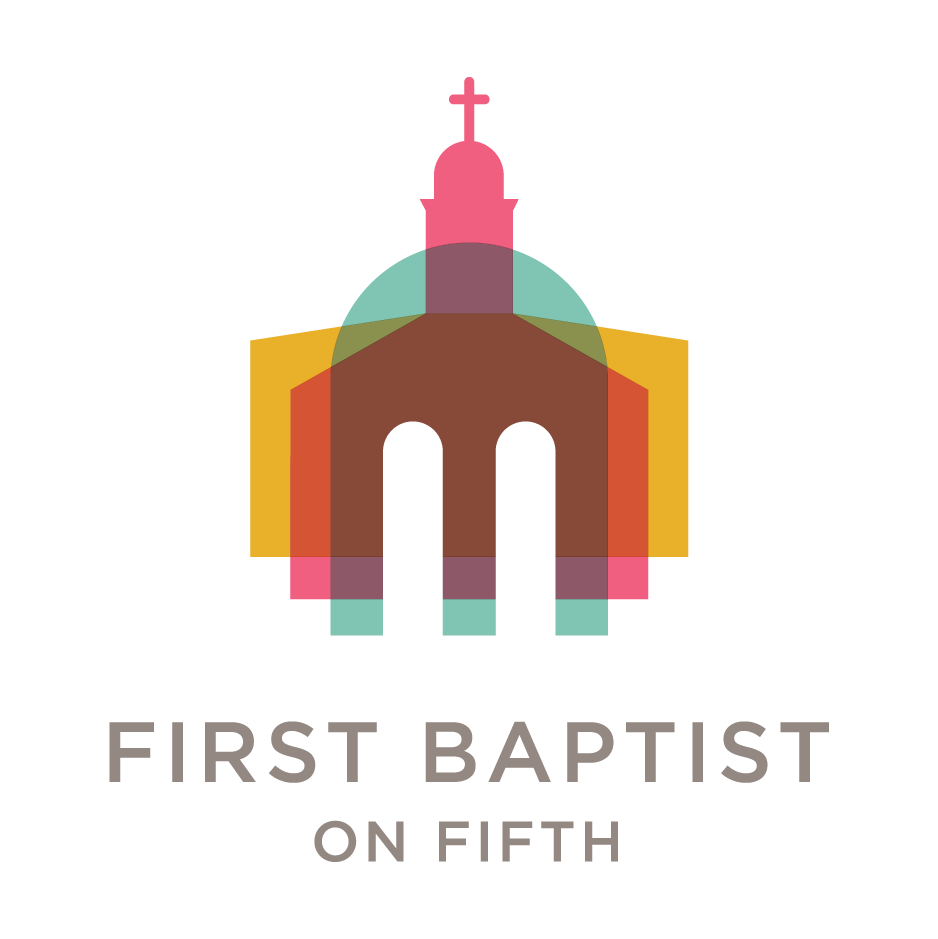
Dear Beloved Community,
I had the good fortune to attend my first Passover Seder meal this week, at Temple Emanuel as a welcomed guest of our friends, Seth Moskowitz and Mary Ann Grozinger. When I explained to my table-mates that I had only ever experienced a Christian expression of Passover Seder when in middle school, the sweet senior adult at my table gave me a quizzical glance – “what exactly is a Christian seder?,” I imagined her wondering! – but then she said with a smile and an earnest note of inclusion, “my family is of the lineage of David… and Jesus was too!”
This was the kind spirit I found from our neighbors at Temple Emanuel that night. We gathered in the Social Hall, feasted on a delicious meal, shared bits of our stories, played some Torah trivia, offered prayers and readings, and enjoyed several trips to the long dessert table overflowing with treats. I met rowdy kids (one who told me which desserts to get extra of!) and a 96 year-old Holocaust survivor. My tablemates were generous listeners to my steady questions about it all. Though the language, the customs, the songs, the prayers, even the foods were new to me (no casseroles or deviled eggs on this table!), the setting felt familiar. Storytelling in beloved community is what religious communities do at their best.
The Haggadah was our printed guide of the night’s flow, “the Telling,” it translates from the Hebrew. It was a telling of the story of the people of Israel: a telling of the transformation from slavery to freedom of the people of Israel.
We opened by lighting the festival candles, and praying for this light to “inspire us to bring light wherever there is darkness so that we may serve You, O God of Freedom.” Moses’ encounter at the burning bush was where the story began, an awakening of liberation. We moved through culinary reminders of the tears of oppression (parsley dipped in salt water), of the plagues of Egypt (one drop of wine on our plate for each of the plagues), of the moment when God passed over the houses of their ancestors (lamb), of the bread of necessity (a piece of matza), of bitter memories of slavery (maror, or horseradish), of the “many in the Jewish community that have been made to feel the outsider within the walls of a synagogue… but the orange has many segments, each one sweet and savored… remind[ing] us of the value of every member of our community” (an orange), of the cup of redemption that shares the fruits of the struggle for freedom (a cup of wine).
We shared in dayeinu, the principle of “giving thanks even for the partial and incomplete.” Rabbi Charlie reminded us that dayeinu “is crucial for living in this uncertain world in which few dreams ever come to total fruition.”
We were called to remember that “in every generation, a person is obligated to see themselves as if they had left Egypt… Because each of us should understand that in our generation, just as in our ancestors’ generation, the status quo is not inevitable. Pharaoh thought himself invincible. The Israelites believed their troubles would never end. But they were all wrong. In every generation there is inequality and oppression and brokenness. This is universal, which is why the Exodus has been taken up by oppressed peoples everywhere on earth. As we relive the Exodus, we feel the pain of those who are suffering, reminding us to work together to repair what is broken in society and our world.”
We opened the door for Elijah, danced and sang with Miriam, were called to count the omer, or a bundle of grain from harvest.
These symbols, rich in meaning and tradition, seemed searing and terribly poignant to the congregation of Temple Emanuel. Several times throughout the Seder, we turned our hearts toward the horrors of October 7, the unrelenting trauma experienced by so many ever since, and the staggering toll it has taken on Israelis and Palestinians and all who love them. “Though our minds know the magnitude of their suffering,” one reading said, “our hearts, overflowing with our own pain, may struggle to hold space for the awareness that their lives too have been shattered…. Yet it is not despite this connection, but in profound awareness of it, that we must compel ourselves to see. Two peoples live in this land, and both are here to stay. As Jews, we have an even greater obligation to care about and to strive to end Palestinian suffering – not only because no human being deserves to suffer as Gazans are suffering, and not only because we should strive to be the kind of people who care about such suffering, but because our lives and our futures are inextricably linked.”
With prayer and thanksgiving and questions and laughter and dancing and grief and feasting, I found myself overcome by the sacredness of this Telling. “It was so beautiful,” I told Rabbi Charlie after Seder was over, “particularly how you held together both joy and sorrow in the rituals tonight.” He smiled gently, and said, “Jews have been holding joy and sorrow together for generations. We carry on.”
“This year we are still slaves,” we recited. “Next year, free people.”
We carry on.
Together in God’s work of Love,Pastor Emily
Ps- Tonight at 7pm at Temple Emanuel, Rabbi Charlie will be hosting an Interfaith Passover Seder for any in our community who are interested in experiencing and learning more about this tradition! I promised him I’d share that invitation with you. For more information, click here!

